Table of Contents
1. Processed Foods
Processed foods are typically high in sodium, unhealthy fats, and added sugars. These ingredients can negatively impact your blood pressure. It's important to limit the consumption of processed snacks, frozen meals, and ready-to-eat meals.
2. Canned Soups
Canned soups are often packed with excessive amounts of sodium to enhance flavor and increase shelf life. Consuming high-sodium soups can significantly raise blood pressure levels. Opt for homemade soups with fresh ingredients whenever possible.
If you're suffering from high blood pressure, it is crucial to be aware of certain foods that can negatively impact your condition. One such type of food is canned soups. While they might seem convenient, canned soups are generally high in sodium, which can significantly contribute to hypertension.
Here's why canned soups should be avoided:
- High Sodium Content: Canned soups often contain excessive amounts of sodium, sometimes exceeding the recommended daily intake in just a single serving. High sodium levels in the body can increase blood pressure and strain the cardiovascular system.
- Hidden Sodium: Some canned soups might appear to have a lower sodium content, but upon closer inspection, you may find hidden sources of sodium, such as monosodium glutamate (MSG), sodium nitrate, or other additives.
- Processed Ingredients: Canned soups are usually processed foods, containing artificial flavorings, preservatives, and unhealthy fats. These ingredients can be detrimental to overall heart health, further exacerbating the issues faced by those with high blood pressure.
If you are craving soup or need a quick and easy meal, consider opting for homemade soups prepared with fresh ingredients and minimal added salt. By doing so, you have better control over the sodium levels and can ensure a healthier meal for yourself.
Remember, managing your blood pressure through a balanced diet is essential. By avoiding canned soups and other high-sodium foods, you are taking proactive steps towards better heart health.
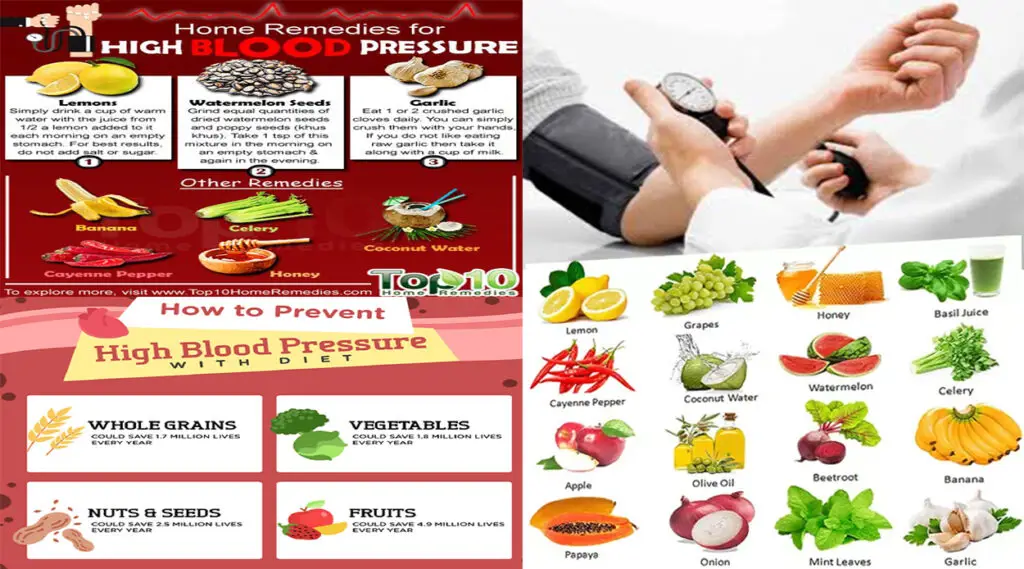
3. Salted Snacks
Snacks like chips, pretzels, and salted nuts are delicious but can be detrimental for individuals with high blood pressure. These snacks are usually loaded with salt, which can lead to fluid retention and increased blood pressure.
When managing high blood pressure, it is crucial to be aware of your salt intake. Salted snacks can significantly contribute to elevated blood pressure levels. Here are three types of salted snacks you should avoid:
1. Potato Chips
Although potato chips are undeniably tasty, they are usually heavily salted, making them a high-sodium snack. Consuming excessive sodium can lead to increased blood pressure, so it is advisable to limit or avoid potato chips altogether.
2. Pretzels
Pretzels are another popular salted snack that can be detrimental for individuals with high blood pressure. They often contain high amounts of sodium, causing water retention and contributing to higher blood pressure levels. Opt for healthier alternatives instead.
3. Salted Nuts
While nuts are generally considered healthy, salted versions should be consumed with caution for individuals with high blood pressure. Salted nuts can be a hidden source of excessive sodium, so it is advisable to choose unsalted or lightly salted varieties.
Remember, when it comes to managing high blood pressure, reducing sodium intake is essential. By avoiding or limiting these salted snacks, you can help maintain a healthier blood pressure level and overall well-being.
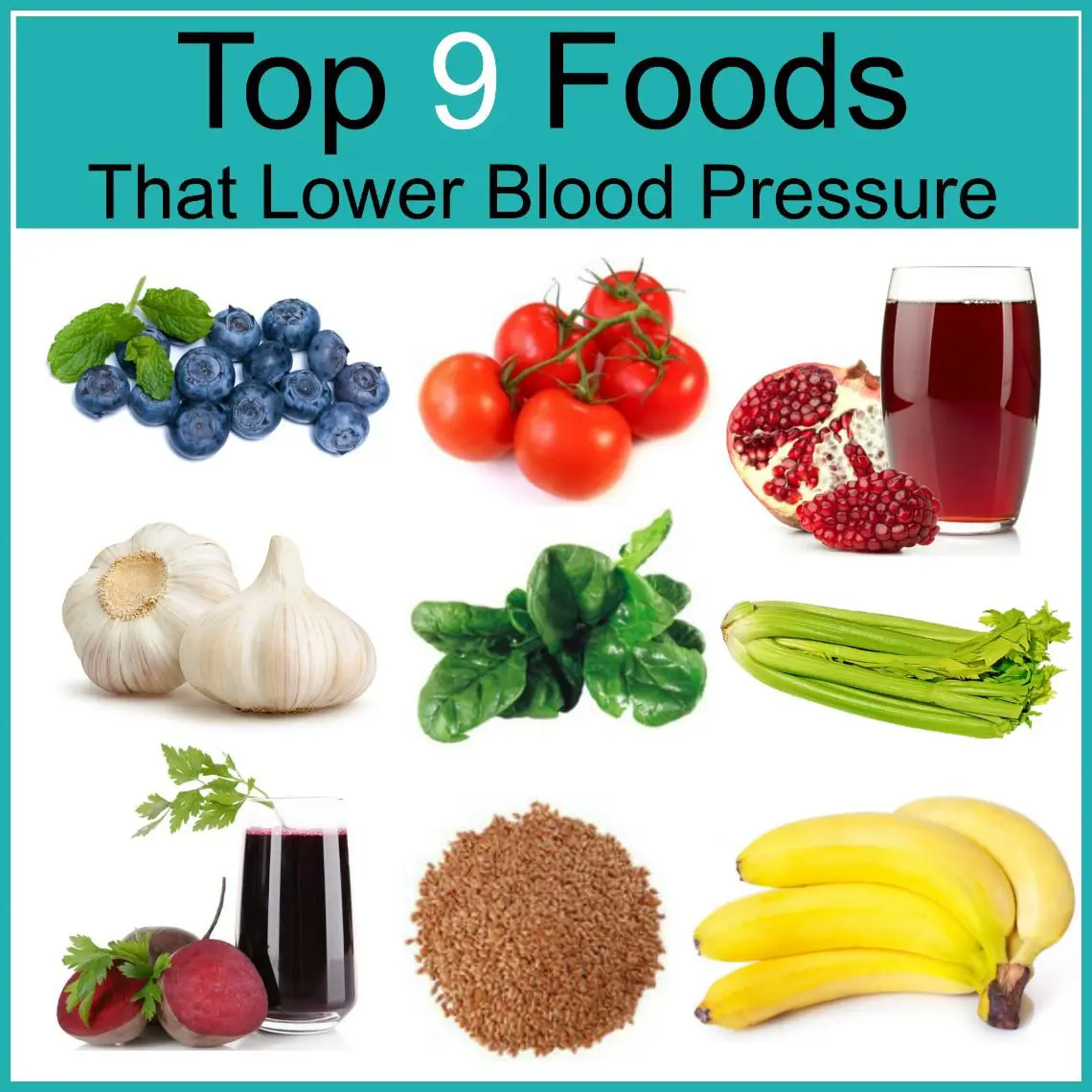
4. Red Meat
Red meat, such as beef, lamb, and pork, contains saturated fats that can raise cholesterol levels and contribute to high blood pressure. Consider choosing leaner protein alternatives like poultry, fish, or tofu for a heart-healthy diet.
If you are suffering from high blood pressure, it is essential to be cautious about your diet. Red meat, in particular, is a type of food that you should avoid or consume in moderation.
Why Avoid Red Meat?
Red meat, such as beef, pork, and lamb, is known for its high content of saturated fats. These fats can lead to increased cholesterol levels, ultimately affecting your blood pressure.
Studies have shown a strong link between the consumption of red meat and the risk of developing high blood pressure. Excessive intake of red meat has been associated with an increased likelihood of hypertension, which can further lead to heart problems.
Healthier Alternatives
If you're craving a meaty flavor, consider opting for lean protein sources. Some healthier alternatives include:
- Skinless chicken or turkey
- Fish rich in omega-3 fatty acids, such as salmon or tuna
- Plant-based proteins like lentils, chickpeas, or tofu
These alternatives not only provide protein but are also lower in saturated fat, promoting a healthier heart and overall blood pressure.
In conclusion, if you are dealing with high blood pressure, it is crucial to be mindful of your dietary choices. Red meat, due to its high saturated fat content, should be avoided or consumed in moderation. By opting for lean protein alternatives, you can make healthier choices and improve your overall blood pressure levels.
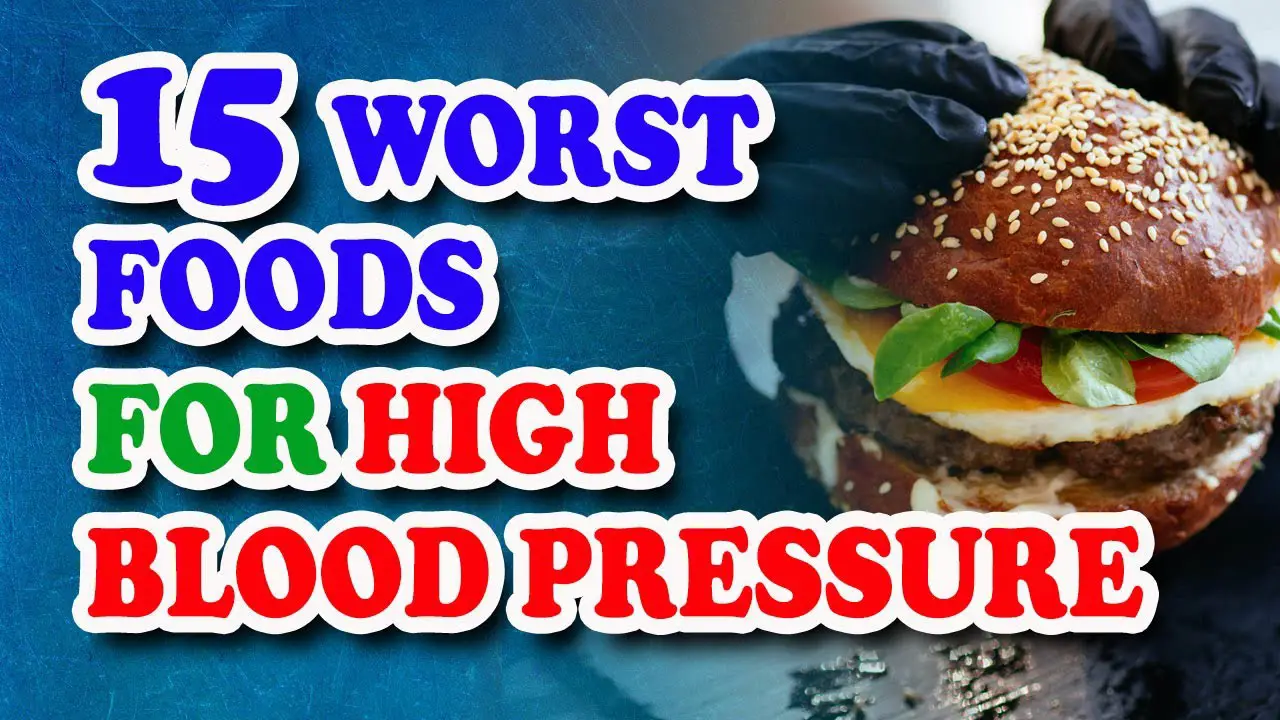
5. Frozen Meals
Frozen meals may seem convenient, but they often contain high amounts of sodium, unhealthy fats, and added preservatives. Opt for freshly prepared meals or meal prepping to have better control over your sodium intake.
When you have high blood pressure, it is essential to watch your diet and avoid certain foods. Frozen meals, although convenient, often contain ingredients that can negatively impact your blood pressure. Here are five frozen meal options to avoid:
- High-Sodium Frozen Dinners: Frozen dinners labeled as "quick and easy" or "ready in minutes" are typically high in sodium content. Consuming excess sodium can cause fluid retention and elevate blood pressure. It is recommended to opt for low-sodium alternatives or cook homemade meals with fresh ingredients.
- Frozen Pizza: Frozen pizzas are notorious for their high sodium, unhealthy fats, and processed toppings. The combination of these ingredients can be detrimental to blood pressure levels. If you crave pizza, consider making a healthier homemade version using whole-wheat crust, low-sodium tomato sauce, and fresh vegetables.
- Frozen Fried Chicken: Pre-packaged frozen fried chicken is often laden with unhealthy oils, saturated fats, and high sodium seasoning. Regular consumption of such meals can lead to weight gain and an increase in blood pressure. Instead, bake or grill your chicken using skinless cuts and minimal seasoning.
- Frozen Breakfast Sandwiches: Frozen breakfast sandwiches may seem convenient, but they usually contain processed meats, cheese, and high-sodium bread or bagels. These components contribute to an unhealthy breakfast choice for individuals with high blood pressure. Opt for healthier alternatives like oatmeal, whole-grain toast, or fresh fruits.
- Frozen Pot Pies: Frozen pot pies often contain excessive amounts of sodium, unhealthy fats, and refined flour crusts. These ingredients can lead to inflammation and increased blood pressure levels. If you crave a comforting pot pie, try making your own using lean protein, low-sodium broth, and a whole-wheat crust.
Remember, maintaining a healthy and balanced diet is crucial in managing high blood pressure. When choosing frozen meals, always check the nutrition labels for sodium content, unhealthy fats, and processed ingredients. Prioritizing fresh and whole foods is the best way to control your blood pressure and overall well-being.
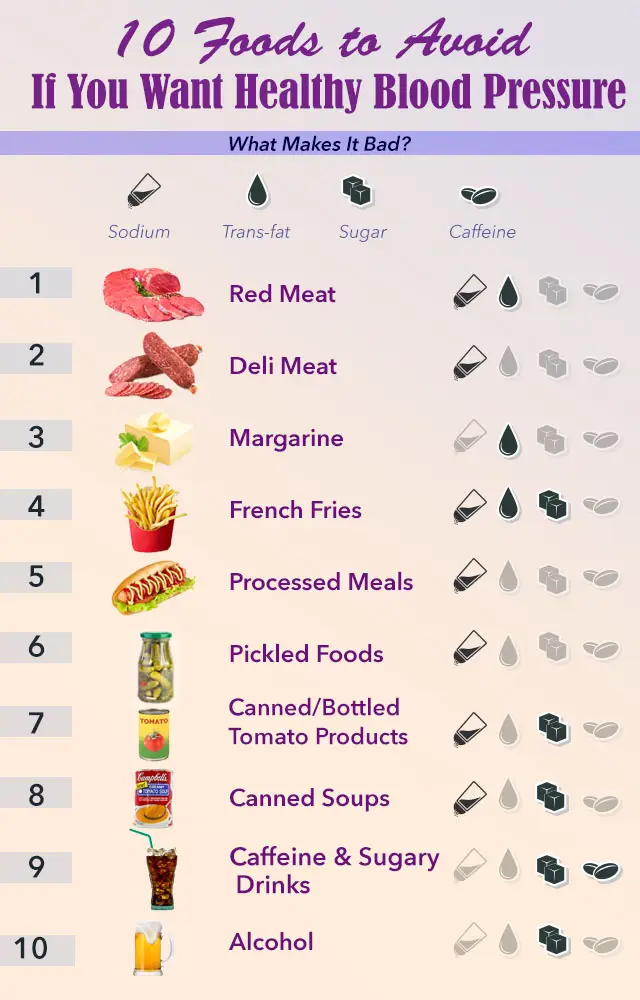
6. Sugary Drinks
Sugary drinks like soda, energy drinks, and sweetened fruit juices can contribute to weight gain and increase the risk of developing high blood pressure. Choose water, unsweetened teas, or freshly squeezed juices to quench your thirst instead.
High blood pressure, also known as hypertension, is a serious health condition that affects millions of people worldwide. If you have high blood pressure, it is crucial to make dietary changes to manage and control your condition. One major dietary aspect to focus on is avoiding sugary drinks.
Sugary drinks such as sodas, energy drinks, fruit juices, and sweetened teas are high in added sugars, which can contribute to high blood pressure levels. These drinks are also usually low in nutritional value and high in calories, leading to weight gain, which further increases the risk of hypertension.
Here are a few reasons why sugary drinks should be avoided if you have high blood pressure:
- Increased Risk of Heart Disease: High sugar intake has been linked to an increased risk of heart disease, including heart attacks and strokes. Consuming sugary drinks regularly can lead to plaque buildup in the arteries, causing them to narrow and harden, ultimately raising blood pressure.
- Weight Gain: Sugary drinks are high in empty calories and can contribute to weight gain. Excess weight is a known risk factor for high blood pressure, and reducing sugar-sweetened beverages can help in maintaining a healthy weight and reducing blood pressure.
- Increased Blood Sugar Levels: Sugary drinks cause rapid spikes in blood sugar levels, leading to insulin resistance, a condition closely associated with hypertension and an increased risk of developing type 2 diabetes.
- Dehydration: While sugary drinks may initially quench your thirst, they can dehydrate your body in the long run. High sugar content can hinder your body's ability to absorb and retain water, leading to increased blood pressure.
If you have high blood pressure, it is best to replace sugary drinks with healthier alternatives such as water, herbal teas, unsweetened fruit juices, or sparkling water with a slice of lemon or cucumber for flavor. By making this simple dietary change, you can reduce your risk of developing complications related to high blood pressure and improve your overall health.
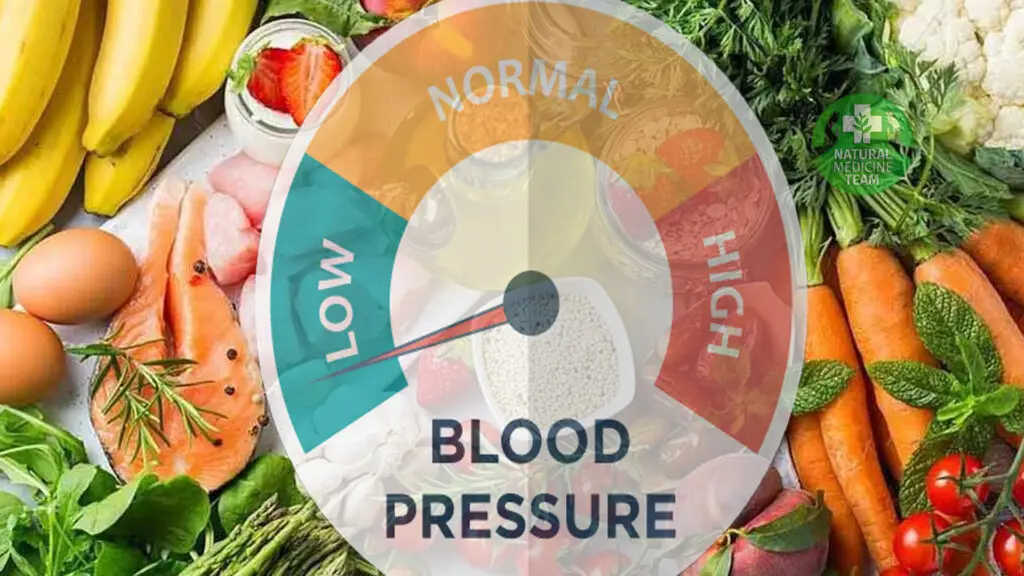
7. Packaged Baked Goods
Packaged baked goods such as cakes, cookies, and pastries are often high in trans fats and refined carbohydrates. These can negatively affect your heart health and increase blood pressure levels. Opt for homemade alternatives or choose whole-grain options when available.
If you are suffering from high blood pressure, it is important to be mindful of your food choices to maintain a healthy lifestyle. One category of food to avoid is packaged baked goods.
Packaged baked goods such as cookies, cakes, pastries, and donuts are often loaded with unhealthy ingredients that can negatively impact your blood pressure levels. They usually contain high amounts of trans fats, saturated fats, sugar, and sodium, which are known to increase the risk of hypertension.
Trans fats and saturated fats can raise your cholesterol levels, leading to clogged arteries and increased blood pressure. These fats are commonly found in baked goods made with hydrogenated oils or margarine. They not only contribute to weight gain but also increase the risk of cardiovascular diseases.
In addition, packaged baked goods are usually high in added sugars. Excessive sugar consumption can contribute to weight gain and obesity, both of which are risk factors for hypertension. Moreover, a high intake of sugar has been associated with inflammation and insulin resistance, which can lead to elevated blood pressure.
Lastly, packaged baked goods tend to be high in sodium. Excessive sodium intake can disrupt the balance of fluids in your body, increasing blood pressure. This is particularly concerning for individuals with hypertension, as it can put additional strain on the cardiovascular system.
When suffering from high blood pressure, it is crucial to opt for healthier alternatives instead of packaged baked goods. Choose fresh fruits, vegetables, whole grains, and lean proteins to support your blood pressure management efforts. Additionally, homemade baked goods made with healthier ingredients such as whole wheat flour, natural sweeteners, and healthy fats can be a better alternative.
Remember, always read the labels and be aware of the nutritional content of packaged baked goods to make informed choices regarding your health.
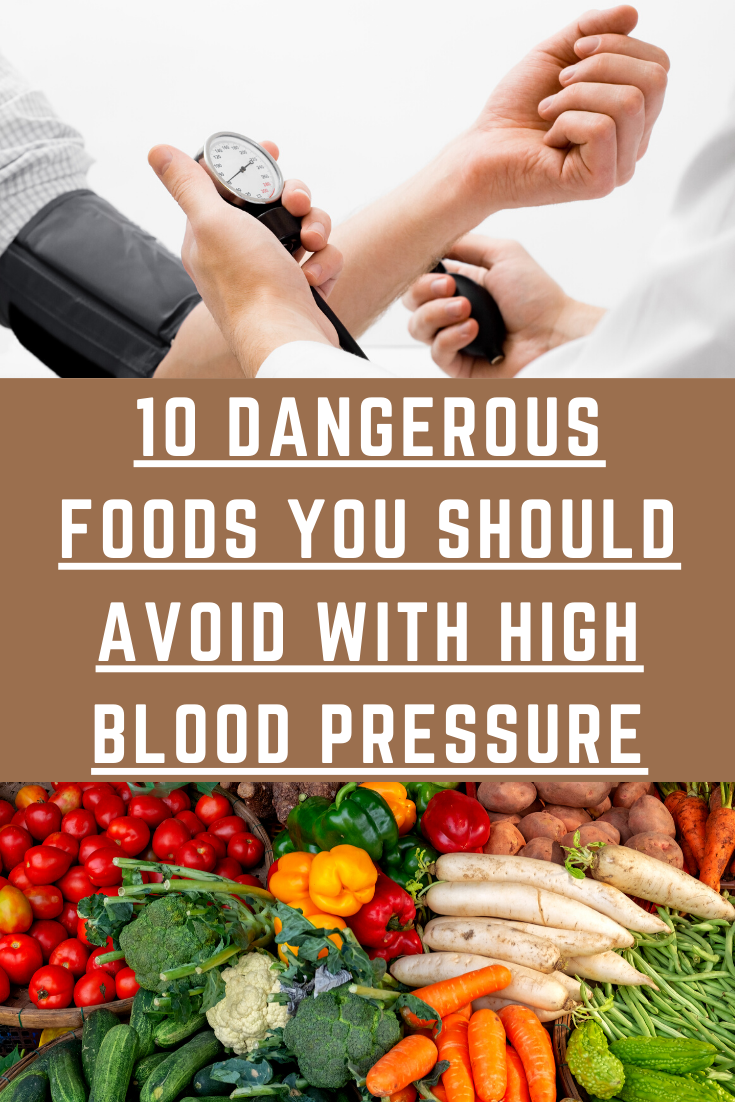
Key Takeaways
- Avoid processed foods, as they often contain high levels of sodium, unhealthy fats, and added sugars.
- Limit the consumption of canned soups, which tend to be packed with excessive amounts of sodium.
- Stay away from salted snacks like chips and pretzels that can increase fluid retention and blood pressure.
- Consider leaner protein alternatives to red meat, such as poultry, fish, or tofu.
- Opt for freshly prepared meals instead of frozen meals to better control your sodium intake.
- Avoid sugary drinks and opt for water, unsweetened teas, or freshly squeezed juices.
- Choose homemade or whole-grain options over packaged baked goods to reduce intake of trans fats and refined carbohydrates.
FAQ
Q: Can I never consume these foods if I have high blood pressure?
A: It's best to limit or reduce the intake of these foods as part of a healthy lifestyle. However, occasional consumption in moderation is acceptable. Consult with your healthcare provider or a registered dietitian for personalized guidance.
Q: Are there any specific foods that can help lower blood pressure?
A: Yes, a balanced diet rich in fruits, vegetables, whole grains, lean proteins, and low-fat dairy products can help maintain healthy blood pressure levels. Some specific foods include berries, leafy greens, nuts, seeds, and low-sodium foods.
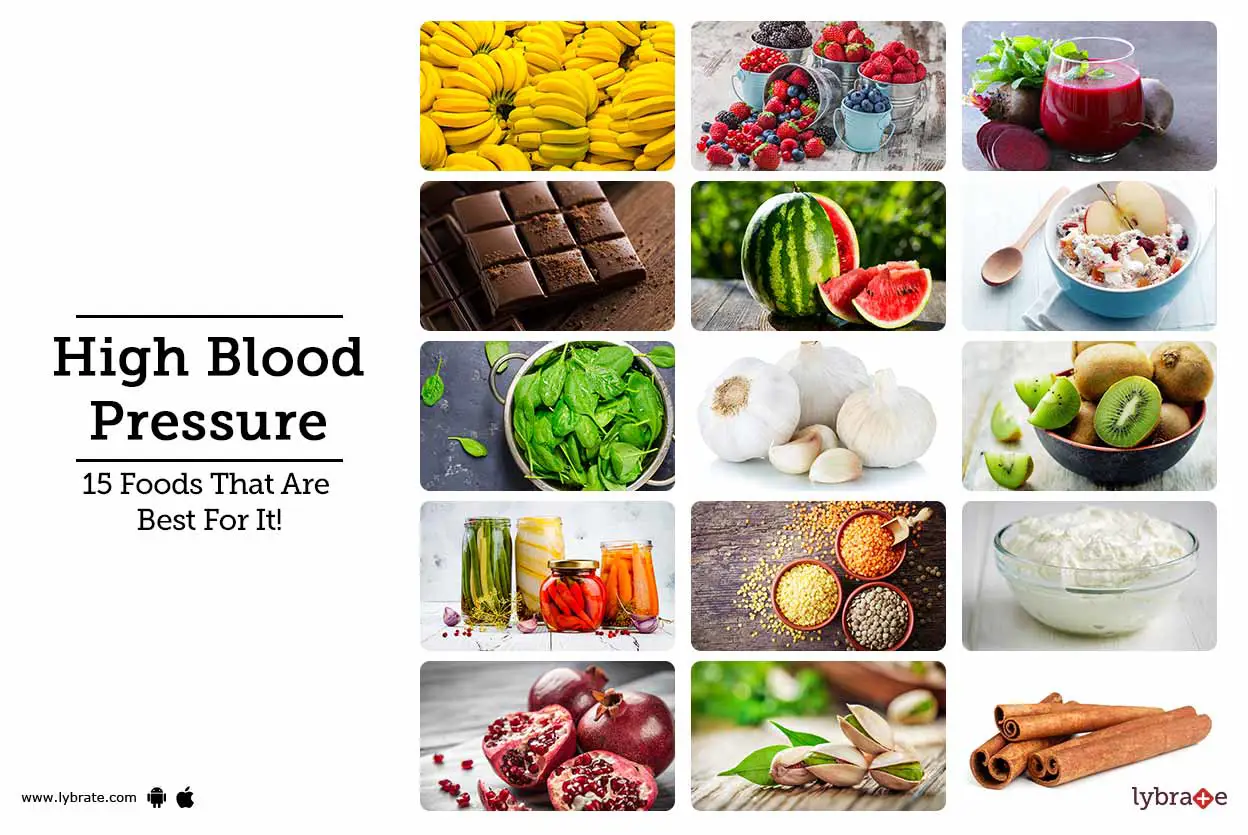


Recent Comments